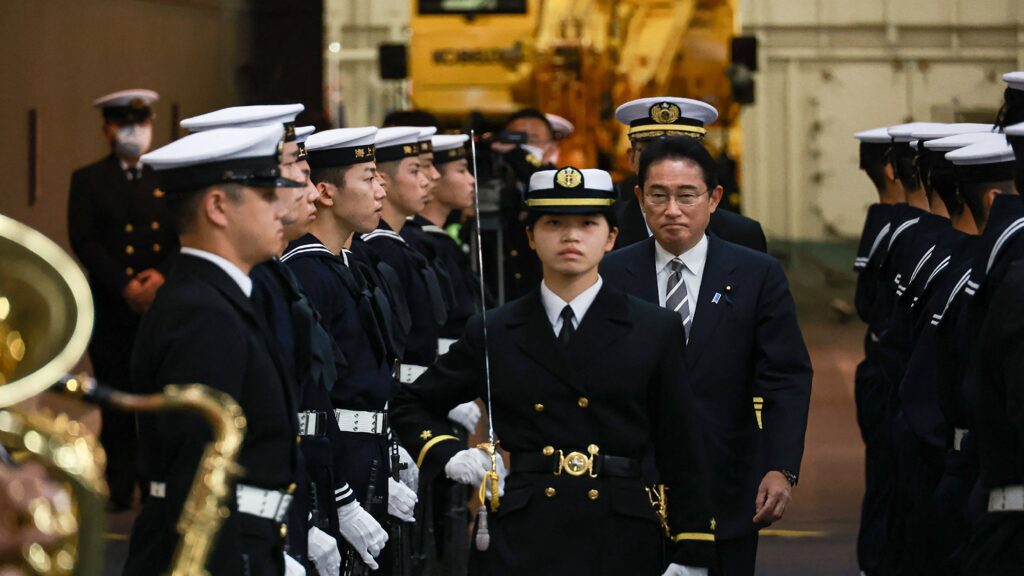The content is an informative article that discusses the role of defense policy in strengthening national security. It highlights the key objectives of defense policy, such as deterring threats, promoting stability, and safeguarding economic and political interests. The article also outlines the elements of an effective defense policy, including adequate defense budget, clear national security strategy, robust intelligence capabilities, strong alliances and partnerships, and research and development. Furthermore, it discusses the role of defense policy in addressing modern challenges such as cybersecurity, terrorism, and space security. Overall, the article emphasizes the importance of defense policy in ensuring a nation’s security in a complex global environment.
The Role of Defense Policy in Strengthening National Security
Introduction
Defense policy plays a vital role in strengthening national security. It encompasses a range of measures and strategies aimed at protecting a country’s sovereignty, deterring potential threats, and defending its citizens. A well-designed defense policy is essential for ensuring a nation’s security and safeguarding its interests in an increasingly complex global environment.
The Key Objectives of Defense Policy
One of the primary objectives of defense policy is to deter potential adversaries from posing a threat to a nation’s security. This can be achieved through the development and maintenance of a powerful military force capable of defending the country against various types of threats, such as territorial aggression or terrorism.
Another key objective of defense policy is to promote stability and security both domestically and internationally. By actively participating in peacekeeping operations, providing humanitarian assistance, and collaborating with allies, a nation strengthens its reputation as a responsible global actor and contributes to the overall stability of the international system.
Additionally, defense policy plays a crucial role in preserving a nation’s economic and political interests. By securing access to vital resources and trade routes, countries can protect their economic well-being and ensure the uninterrupted flow of goods and services. Defense policy also provides the necessary framework to address emerging challenges in areas such as cybersecurity and space, which have become vital to both national security and economic prosperity.
Elements of an Effective Defense Policy
An effective defense policy consists of several key elements that collectively contribute to national security:
1. Adequate Defense Budget
A well-funded defense budget is essential for maintaining a capable military force. Sufficient financial resources allocated to defense ensure the availability of modern equipment, training, and personnel necessary to respond to potential threats effectively. It enables the development and acquisition of advanced technologies, fostering the country’s military superiority and deterrence capabilities.
2. Clear National Security Strategy
A comprehensive national security strategy should outline the country’s priorities, threats, and potential responses. It serves as a guiding document for defense policy, providing a roadmap for decision-making and resource allocation. A clear strategy ensures that defense measures are aligned with a nation’s broader objectives, allowing for a more coordinated and effective approach.
3. Robust Intelligence Capabilities
Intelligence plays a critical role in defense policy, as accurate information is crucial for identifying potential threats and planning appropriate responses. Investing in intelligence-gathering capabilities, including human intelligence, signals intelligence, and geospatial intelligence, enhances a nation’s situational awareness and strengthens its ability to preemptively address emerging challenges.
4. Strong Alliances and Partnerships
Defense policy should prioritize the establishment and maintenance of strong alliances and partnerships. Collaborating with like-minded nations enhances a country’s collective security and amplifies its deterrence capabilities. Joint exercises, information sharing, and mutual assistance agreements foster interoperability and cooperation among allied forces, improving their collective ability to respond to security threats.
5. Research and Development
Investing in research and development (R&D) is crucial for ensuring a country’s military capabilities remain ahead of evolving threats. R&D efforts focus on developing advanced technologies, such as cybersecurity systems, autonomous weapons, and missile defense systems, which are essential for maintaining a competitive edge in the modern security landscape.
The Role of Defense Policy in Modern Challenges
Defense policy plays a critical role in addressing modern security challenges that have emerged in the 21st century:
Cybersecurity
Cyber threats have become a significant concern for national security. Defense policy plays a crucial role in developing robust cybersecurity strategies, investing in cutting-edge technologies, and coordinating efforts to protect critical infrastructure, secure sensitive information, and defend against cyberattacks from state and non-state actors.
Terrorism
Defense policy plays a vital role in countering terrorism. It involves close collaboration with intelligence agencies, providing support to law enforcement, and conducting counterterrorism operations both domestically and internationally. Effective defense policies are essential for preventing attacks, disrupting terrorist networks, and enhancing resilience against this persistent threat.
Space Security
Defense policy also extends to the realm of space security. The growing importance of space for communication, navigation, and surveillance necessitates the development of defense policies that address potential threats to satellites and other space assets. Safeguarding space-based infrastructure is crucial for maintaining military operations, intelligence gathering, and global connectivity.
Conclusion
Defense policy plays a central role in strengthening national security. It encompasses a range of measures aimed at deterring threats, promoting stability, and safeguarding a nation’s interests. An effective defense policy requires adequate funding, a clear national security strategy, robust intelligence capabilities, strong alliances and partnerships, and investment in research and development. In an ever-evolving security landscape, defense policy must also adapt to address emerging challenges such as cybersecurity and space security. By prioritizing defense policy, nations can ensure their security and protect their citizens in an increasingly complex world.
